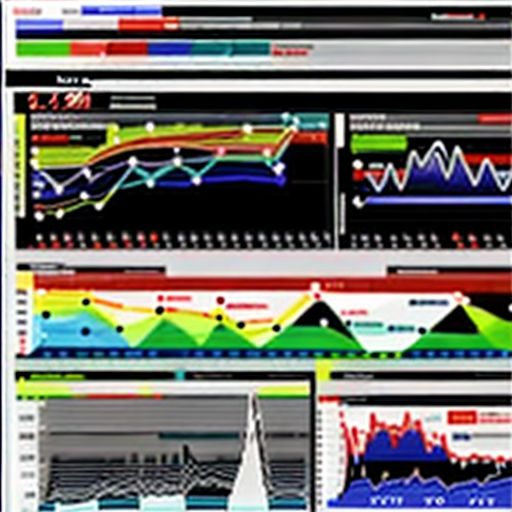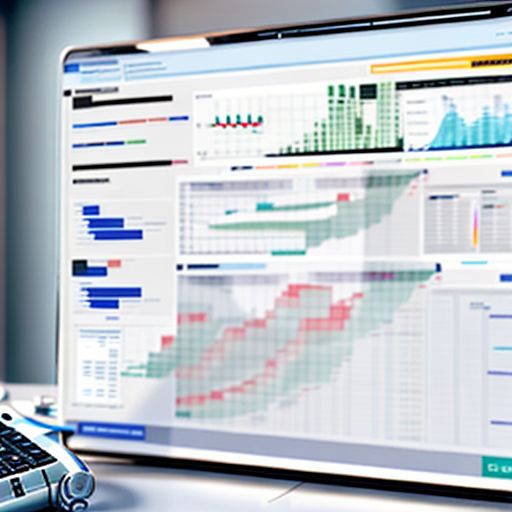The healthcare industry is in the midst of a data explosion. Electronic health records, wearable tech, genomic sequencing – it’s all generating an unprecedented amount of information. Making sense of this data deluge is crucial, not just for improving patient outcomes but also for enhancing operational efficiency and reducing costs. That’s where Top Healthcare Analytics Companies come in. These companies provide the tools and insights necessary to turn raw data into actionable intelligence.
But with a growing number of players in the field, how do you choose the right healthcare analytics partner for your needs? This article explores the key players, the importance of healthcare analytics, and answers frequently asked questions to guide you through this complex landscape.
Understanding the Power of Healthcare Analytics
Before diving into the top companies, it’s essential to grasp the significance of healthcare analytics itself. Healthcare analytics encompasses a range of technologies and processes used to extract meaningful insights from healthcare data.
Why is Healthcare Analytics Important?
The benefits of leveraging healthcare analytics are vast:
- Improved Patient Outcomes: By analyzing patient data, providers can identify potential risks, personalize treatment plans, and enhance care coordination.
- Reduced Costs: Analytics can pinpoint operational inefficiencies, streamline processes, and reduce unnecessary spending.
- Enhanced Operational Efficiency: Data-driven insights optimize resource allocation, streamline workflows, and improve overall productivity.
- Population Health Management: Healthcare analytics facilitates the identification of trends and risk factors within populations, enabling proactive interventions and public health initiatives.
- Fraud Detection and Prevention: Advanced analytics can detect anomalies and patterns indicative of fraudulent activities, safeguarding both patients and healthcare organizations.
Key Considerations When Choosing a Healthcare Analytics Company
Selecting the right healthcare analytics partner is a critical decision. Factors to consider include:
- Specific Needs and Goals: Clearly define your organization’s unique challenges and the outcomes you aim to achieve through analytics.
- Data Sources and Integration: Evaluate the company’s ability to integrate with your existing systems and handle diverse data sources.
- Analytics Capabilities: Assess the breadth and depth of the company’s analytics tools, including predictive modeling, data visualization, and machine learning.
- Implementation and Support: Consider the company’s track record of successful implementations and the level of ongoing support provided.
Top Healthcare Analytics Companies: A Closer Look
The field of healthcare analytics is constantly evolving. Here are some of the leading companies known for their innovative solutions and impact on the industry:
1. Optum: A subsidiary of UnitedHealth Group, Optum offers a comprehensive suite of data analytics, technology, and consulting services. Their solutions span population health management, care coordination, and payment integrity.
2. Cerner Corporation: A global leader in health information technology, Cerner provides a wide range of analytics solutions integrated with their electronic health record (EHR) systems. Their focus areas include clinical intelligence, operational improvement, and population health.
3. Epic Systems Corporation: Known for its widely adopted EHR systems, Epic also offers robust analytics capabilities. Their platform provides insights into clinical quality, patient engagement, and revenue cycle management.
4. IBM Watson Health: Leveraging the power of artificial intelligence (AI), IBM Watson Health offers solutions for image analysis, drug discovery, and patient engagement. Their focus on AI-driven insights sets them apart.
5. SAS Institute: A pioneer in analytics, SAS provides a comprehensive platform for healthcare organizations. Their solutions address areas such as risk management, fraud detection, and clinical trial analysis.
healthcare.xephucloi.vn/wp-content/uploads/2024/07/healthcare-analytics-dashboard-66964a.jpg" alt="Healthcare Analytics Dashboard" width="512" height="512">Healthcare Analytics Dashboard
Addressing Common Questions About Healthcare Analytics Companies
1. What is the role of data visualization in healthcare analytics?
Data visualization plays a vital role in making complex data sets easily understandable. Interactive dashboards and reports allow stakeholders to quickly grasp trends, identify outliers, and make data-driven decisions.
2. How is artificial intelligence (AI) transforming healthcare analytics?
AI is revolutionizing healthcare analytics by automating tasks, uncovering hidden patterns, and enabling predictive modeling. This leads to more accurate diagnoses, personalized treatments, and proactive interventions.
3. What are the challenges of implementing healthcare analytics solutions?
Challenges include data integration issues, data security concerns, resistance to change, and the need for skilled personnel to manage and interpret the data.
4. What does the future hold for healthcare analytics?
The future of healthcare analytics is bright, with advancements in AI, machine learning, and real-time data processing poised to further transform the industry. We can expect more personalized medicine, proactive care, and a greater emphasis on preventive health measures.
Conclusion
The world of healthcare data is vast and complex. By partnering with top healthcare analytics companies, healthcare providers, payers, and researchers can unlock the potential of this data to improve patient care, enhance operational efficiency, and drive innovation within the industry.
Have questions about finding the right healthcare analytics partner? Share your thoughts in the comments below!



